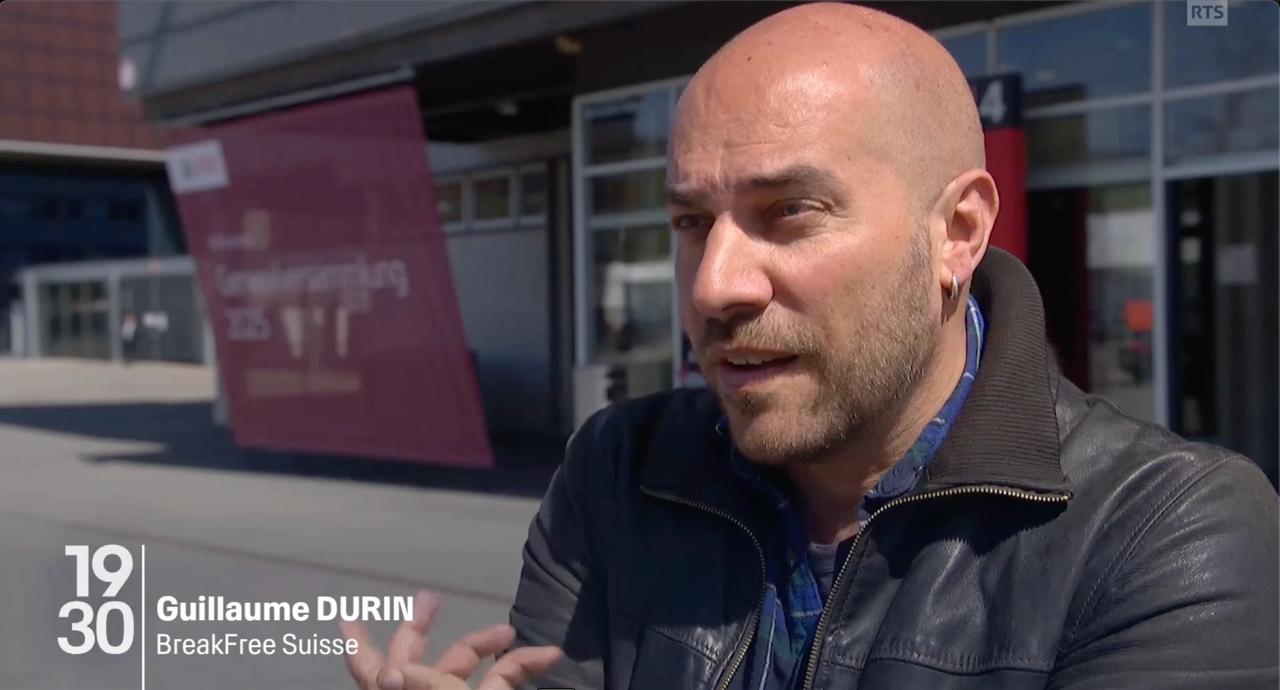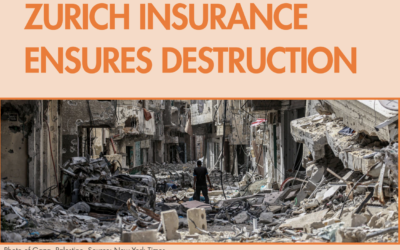UBS poses a serious risk to the Swiss Confederation and our biosphere
A call for the Swiss bank to increase its capital requirements
7 May 2025, Zurich, Switzerland – During UBS last annual general meeting, its Chairman Colm Kelleher described comparisons with Credit Suisse as “insulting,” defended excessive variable compensation, and reiterated his opposition to higher capital requirements, citing “geopolitical tensions.”
However, the collapse of Credit Suisse showed that a lack of self-reflection, a culture of excessive bonuses, a permissive environment, and risky business relationships significantly increase the risk of a banking disaster.
The “conservative risk culture” is neither obvious nor definitive. Heavily exposed to subprime mortgages, UBS was bailed out by the Swiss government and the SNB in 2008. Then, like Credit Suisse, it was heavily fined for tax evasion in the US, as well as for rate manipulation [Le Temps, Mai 2015 & Washington Post, Février 2009].
UBS has crossed several red lines. It has abandoned the exclusion of investments in companies trading in oil from the Amazon basin, which Credit Suisse had prudently set as a rule [L’info Durable]. However, Trafigura, Vitol, and Glencore have been linked to several recent corruption scandals involving Petrobras [Le Temps, Mars 2024 & Le Temps, Nov 2018]. The bank has granted $2.9 billion in loans to Vitol and $755 million to Trafigura Trading since 2016 [Banking on Climate Chaos, 2024].
UBS is also involved in other risky business relationships. It is the second-largest European investor in San Miguel Global Power, a subsidiary of the Philippine conglomerate San Miguel Corporation, which combines beer production with the construction of LNG power plants in the Philippines [Urgewald, 2025]. The bank also supports Gulf, a company developing gas projects in Thailand. In both cases, it disregards the rights and living conditions of hundreds of thousands of people and ecosystems of global importance [BankTrack, 2025].
For the record, the Mozambique Tuna Bonds scandal, in which Credit Suisse was embroiled, involved corruption schemes and practices linked to the exploitation of newly discovered gas fields. It cost the bank hundreds of millions in fines and resolution costs, as well as severe reputational damage [Le Temps, octobre 2021].
While dismissing critical reflections out of hand, the new Swiss banking giant is sliding down the slope of risky profits. Refusing to strengthen safeguards on the pretext that the international situation is tense and that “other financial centers are relaxing their regulations” is not a justification. On the contrary, these are additional warning signs. Some regulators are choosing to strengthen protections [Singapore Variable Capital Company (VCC), rapport PwC, 2020 & Banque Centrale du Luxembourg, Revue de stabilité, 2024]. It is becoming increasingly clear that in order to avert the risks posed by UBS’s size and behavior, public authorities must now require it to substantially increase its capital.
Camille Delgrange, BreakFree Switzerland
Guillaume Durin, PhD, BreakFree Switzerland

At this year’s general assembly of UBS, there were diverse interventions by a broad alliance of activists. Two directly affected individuals from the Philippines traveled together with the organization Urgewald to speak at the assembly. In addition, BreakFree member Guillaume Durin was interviewed by RTS, and a large protest action took place in front of the entrance to the assembly.








